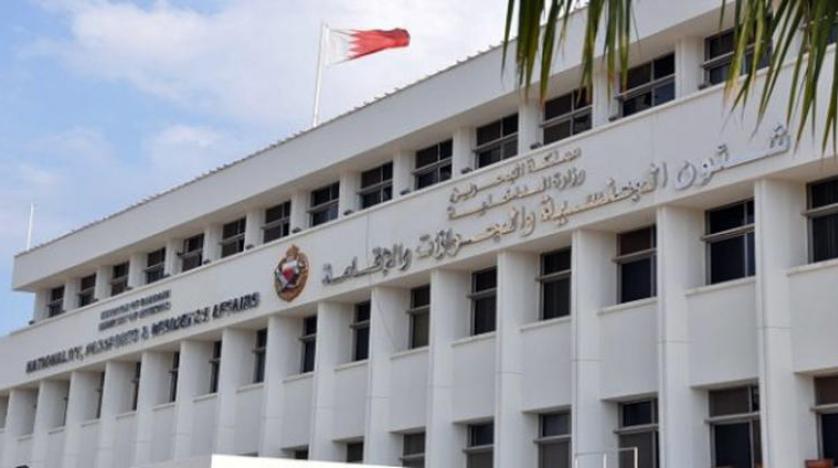Nine years have passed since the Bahraini people took to the streets calling for political reform and respect for human rights. Since then, the only progress the Government of Bahrain has achieved is the advancement of its whitewashing strategies. Through sham oversight bodies and their respective social media platforms, the Bahraini ruling family has invested significantly in concealing the brutal reality of the human rights situation.Take for instance the Bahraini Ministry of Interior (MOI). This institution is supposedly tasked with the oversight of citizen protection the country’s internal security. Conversely however, it has been frequently plagued with longstanding allegations of gross misconduct and a plethora of human rights abuses.There are well-founded accusations that the Public Prosecution Office (PPO) has been filling the MOI with former employees – deliberately incumbering the judiciary’s ability to function impartially – and substantiated claims of torture in order to extract false confessions from activists and human rights defenders.
The content displayed on the MOI’s online platforms portray a fictious narrative far removed from reality.The MOI, for example, expressed its relentless dedication towards facilitating asafe environment during the Ashura season.King Hamad bin Isa Al-Khalifa has been personally applauded for his inclusive approach, that apparently“embodied the meanings of national cohesion and provided a model for national brotherhood”. Critics of the regime however, remain unconvinced of the county’s ‘national cohesion’ and ‘brotherhood’ in the face of 300 denaturalization’s, most of which targeted Shia activists and Shia clerics merely for peaceful expression. Moreover, the continuous torture of Shia opposition leaders and the targeted discrimination aimed at the Shia community, for example the restrictions on religious rights and the demolition of Shia mosques and religious institutions, runs counter to the public narrative of cohesion. Unless the members of the MOI responsible for these violations are held to account, spurious claims of unity will mask the truth.
Additionally, in the past few months, websites and social media accounts belonging to the Bahrain News Agency and Foreign Ministry of Bahrain have been promoting the launch of the National Human Rights Strategic and Action Plan. According to the Bahraini Foreign Ministry, the Kingdom has achieved important milestones in all fields related to the protection of human rights, including those concerning the freedoms of opinion and expression,and the safeguarding of the freedom of the media. Bahrain’s National Institute for Human Rights (NIHR) was established in 2014 in response to heavy criticism regarding the human rights situation in the country. Its tasks include the promotion, development and protection of human rights, with the organization officially mandated to receive, examine and investigate human rights related complaints, refer cases to the appropriate authorities and follow up on case progress.
The Plan claims to satisfy the requirements of the Universal Declaration of Human Rights. One of the key topics is the right to equal opportunities, meaning that each person should be treated equally regardless of religion, gender,ethnicity or race. In reality systematic discrimination against the majority Shiacommunity is widespread, with the country’s Baharna and Ajam ethnoreligious groups, in particular, facing discrimination based on the intersection of faith and heritage.
The NIHR Committee conducted field visits to detention and rehabilitation center sin order to certify that religious freedoms were being respected during the Holy Month of Muharram. They issued an official statement affirming the free exercise of religious rites and the equal treatment of inmates.Again however, this contravenes numerous reports and complaints of religious discrimination received by human rights NGOs. Sectarian restrictions against incarcerated Shia are well-documented. Harassment tactics range from verbal denigration, to prison personnel interrupting prayer and confiscating the inmate’s religious possessions. The NIHR meanwhile has reported that the Committee has met with both inmates and prison officials and claims that religious freedom is being fully respected. This has been widely received by NGOs as another example of NIHR propaganda, with the institution, although purportedly independent of government, being roundly denounced for whitewashing human rights violations.
Similarly, the Ombudsman for the Ministry of Interior,another supposed independent secretariat established to ensure compliance with the Code of Conduct, has been called-out for its lack of impartiality and independence from the very in Ministry is it mandated to regulate. Since its establishment in 2012, it has failed to both hold prison staff accountable for misconduct and failed to take promptaction to protect detainees from torture and other ill-treatment. Frequently the Ombudsman has responded to complaints by dismissing the accusations they are meant to investigate. This was the case for Hajer Mansoor Hasan and Husain Moosa,among numerous others.While on paper the establishment of an authority to investigate human rights violations remains a positive development, the Ombudsman is simply unable or unwilling to effectively execute its responsibilities.
In short, the Bahraini government’s comprehensive efforts to disguise the truth-involving the human rights situation are proving somewhat effective. Fortunately however, NGOs and Bahraini activists increasingly disseminate information that reveals the human rights realities in the country. The government is attempting to ramp-up its propaganda efforts, but it can only ever achieve partial success at best. In this case, unveiling the truth is easier and less costly than propagating misinformation. Instead of concentrating their efforts towards whitewashing abuses, the government needs to take seriously the human rights violations in the country.No matter how much money is thrown at misrepresentation, international criticism will persist until the government takes meaningful action.





